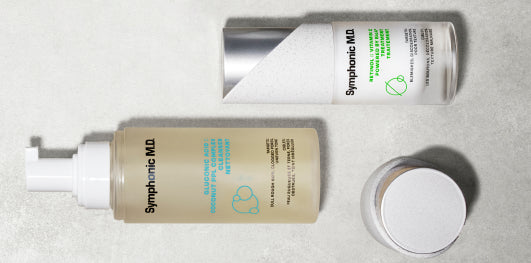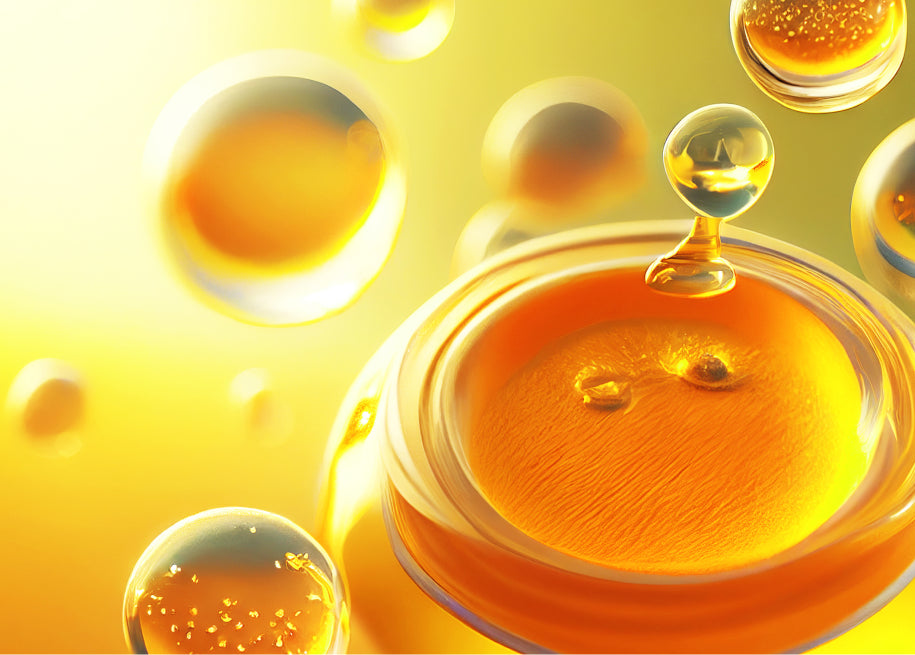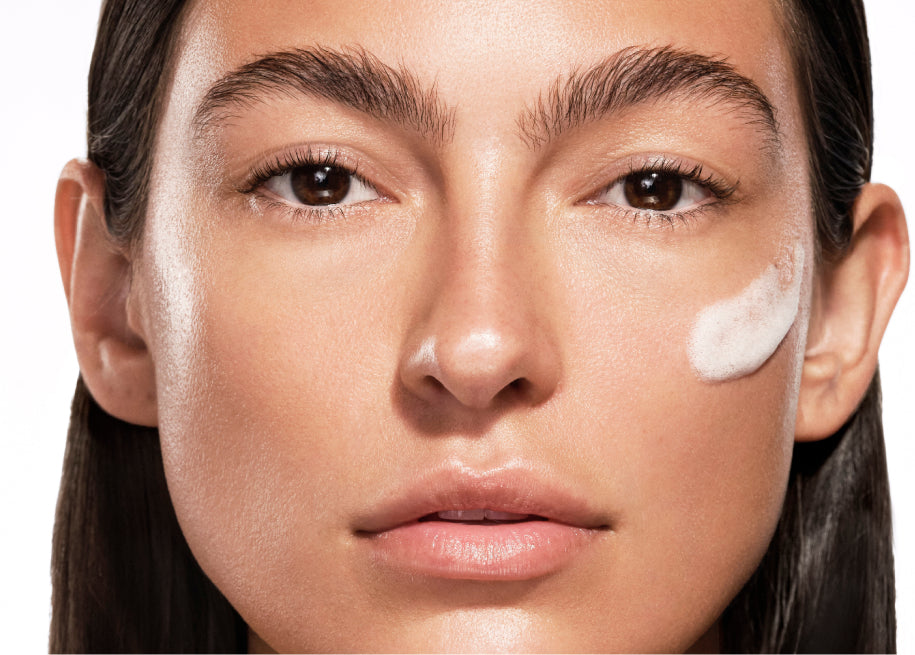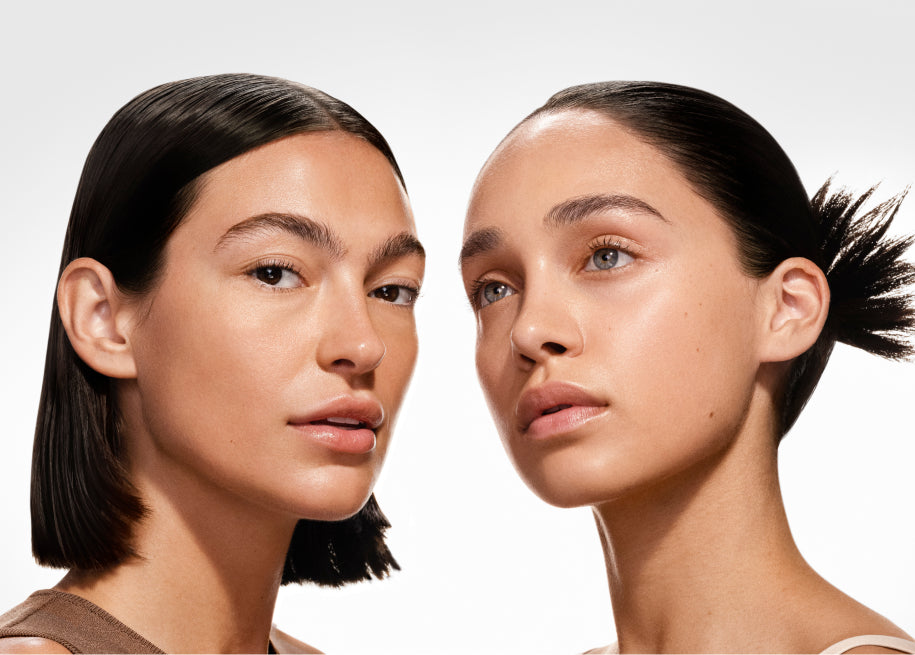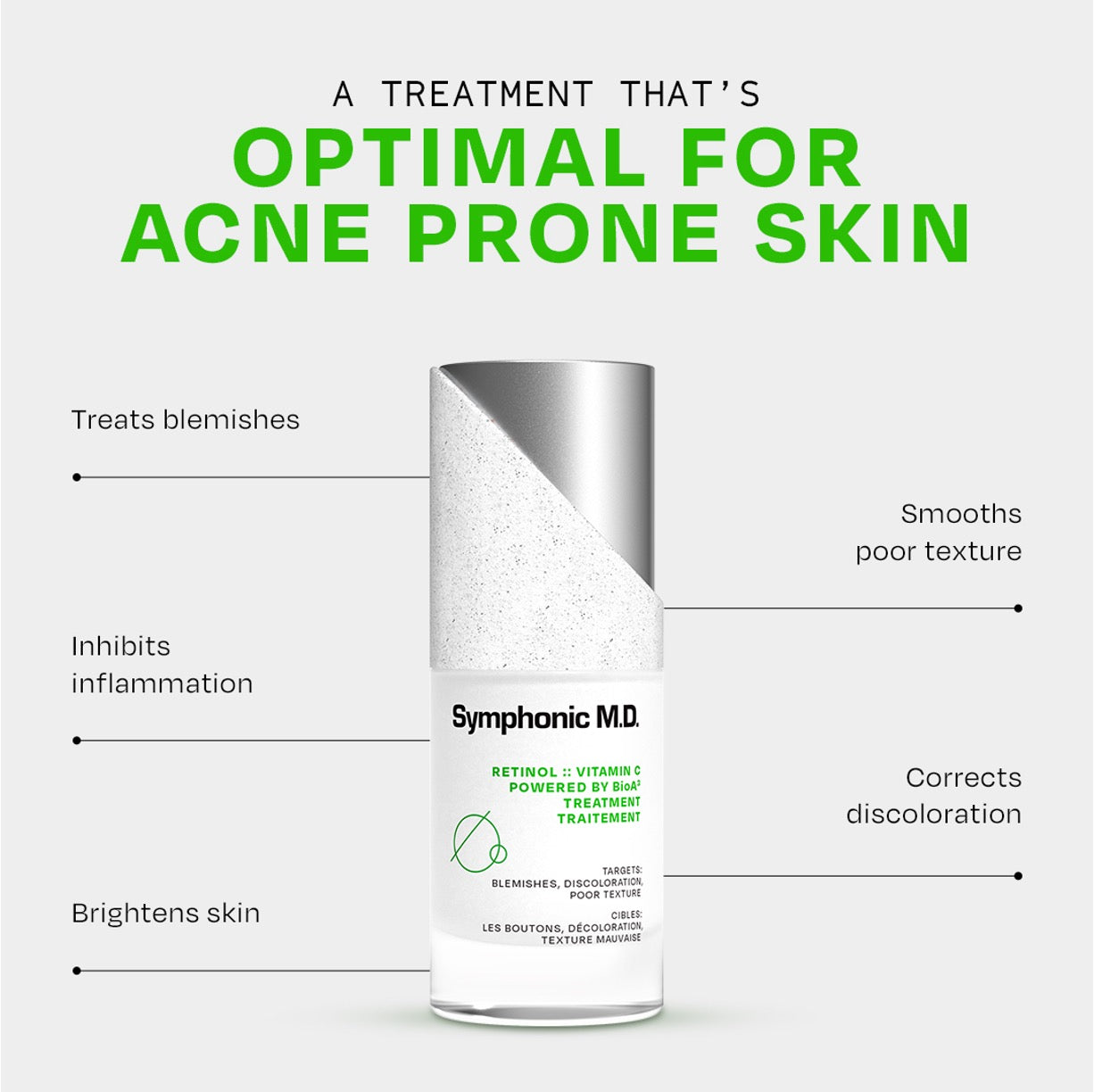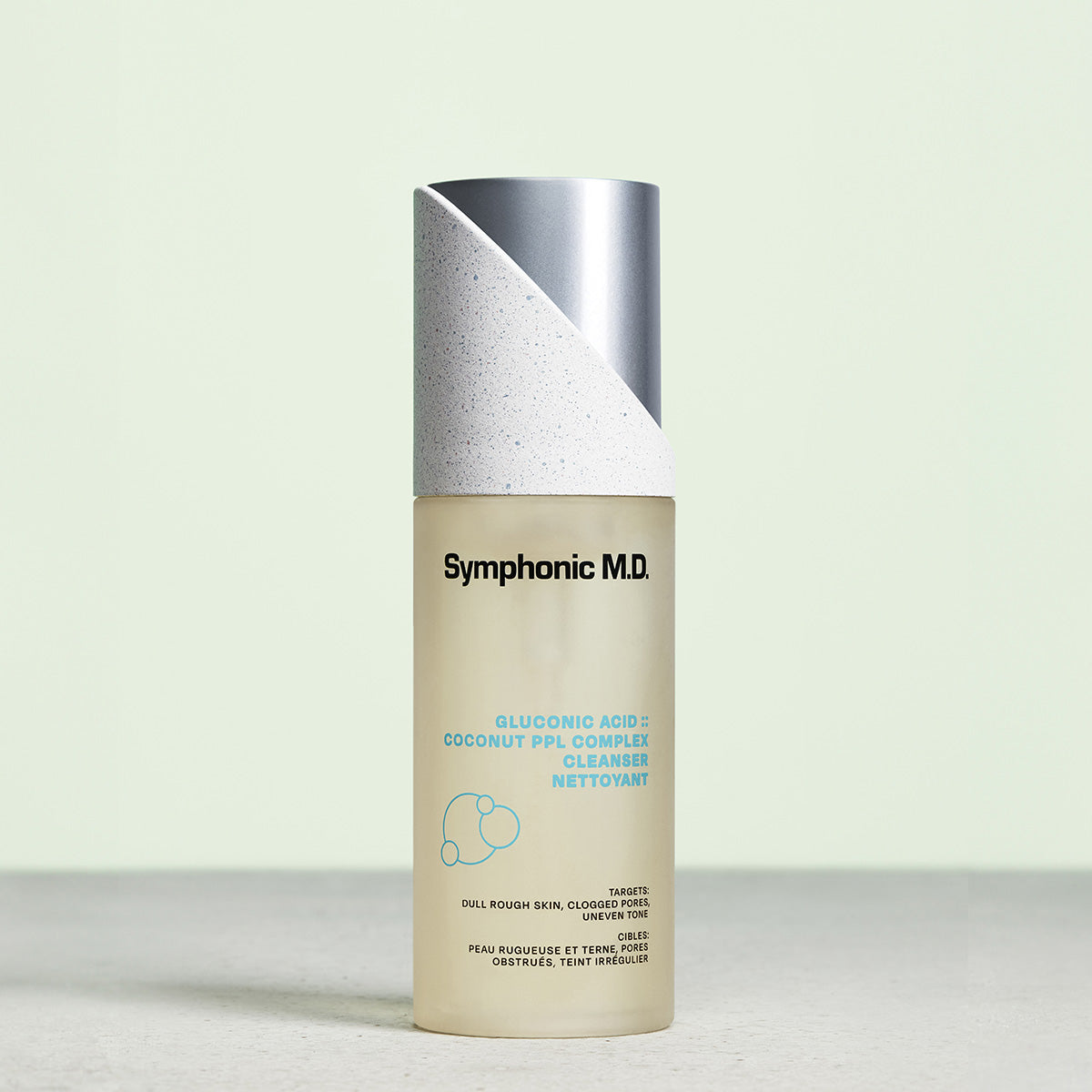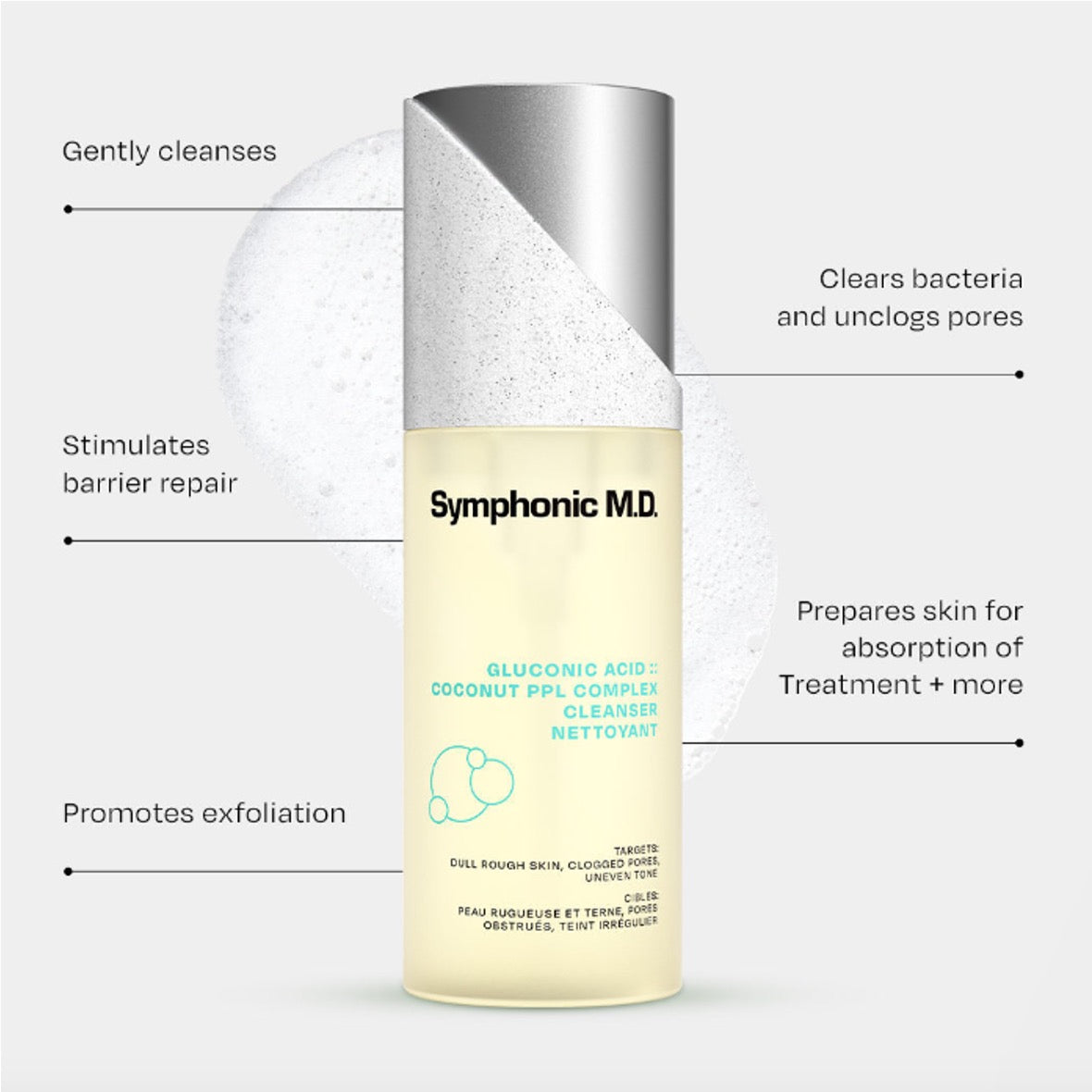Moisturizer is an essential step in every skincare routine. But if you struggle with acne, you might be scared that applying any kind of lotion to your face could make breakouts worse.
The truth is that the right moisturizer will improve acne, not aggravate it. We've done a deep dive into which moisturizers are best for acne-prone skin — plus, common mistakes and ingredients to avoid.
What is acne?
Let's start with the basics - acne is a common condition and around 95% of us will get breakouts at some point in our lives. But even though it's so common, many people don't understand what causes it — or how to manage it.
Your skin contains sebaceous glands which produce natural, moisturizing oils, as well as holding hair follicles. Your skin uses those oils (also called sebum) to keep itself healthy.
However, sometimes the sebaceous glands start producing too much oil. The excess oil mixes with dead skin cells and clogs up pores.
That's what causes the whiteheads and blackheads on your skin. Add bacteria and hormones into the mix, and you can also get forms of acne such as cysts, nodules, pustules, and papules.
Can moisturizer cause acne?
If you touch your skin during a breakout, you'll probably notice that it feels oily from all the excess sebum. You might well conclude that your skin needs less oil, moisturizer, and lotion. Surely drying out the skin would reduce acne?
Unfortunately, it's not that simple. Dehydrating your skin can cause more dead skin cells and oil production in the long run, which actually results in more acne.
Moisturizer and lotion can still be good for acne-prone skin. If you've had bad results before, then the real problem was likely either a specific ingredient — or how you were using the moisturizer.
Let's take a closer look at those two issues.
Your moisturizer contains ingredients that react badly with your skin
Not all moisturizers are created equal. You'll need to find one that suits your skin type, any skin conditions, skincare goals — and acne.
The most important thing is to choose a moisturizer or lotion that's designed for the face. Moisturizers for the rest of your body are likely to be heavier. So, you want something that's lightweight, easily absorbed, and non-comedogenic (that's the skincare term for "doesn't make acne worse").

You should also try to avoid these ingredients, which can trigger irritation or acne:
- Petroleum
- Aluminum
- Mineral oil
- Triclosan
- Siloxanes
- Polyethylene, propylene, and butylene glycol
- Phthalates (often listed as fragrance)
- Parabens
- Urea
- DEA (diethanolamine), MEA (Monoethanolamine), and TEA (triethanolamine)
- Artificial fragrances
- Retinoic acid - while other retinoids can be helpful, retinoic acid is a harsher chemical which could trigger irritation.
You're over-moisturizing your skin
The other mistake that people make with acne-prone skin is over-moisturizing. Sure, you still need to moisturize … but not too much.
Your skin can only absorb a certain amount of product in one go. If you apply too much, then your skin absorbs what it can, the rest leaves a thick layer of excess lotion sitting on the skin and blocking pores.
If you're still seeing breakouts after using lotion, try using it in smaller amounts. If you still have issues after that, consider switching to a different moisturizer.
Signs that you’re over-moisturizing
Watch out for these signs that you're over-moisturizing acne-prone skin:
- Clogged pores. Clogged pores are the leading cause of acne — if you suddenly see an increase, then your moisturizer may be the problem.
- More breakouts. Clogged pores can be hard to spot — but breakouts are immediately noticeable. If you regularly break out, or notice that you're getting acne more often than usual, then the first thing to check is your skincare routine and choice of products.
- Dry skin. It's counter-intuitive, but using too much lotion can cause dryness. Your skin is flooded with moisturizer, so it stops producing natural oils, creating a vicious circle of over-moisturizing and dry skin.
- Excess sebum. Too much moisturizer can confuse your body's sebaceous glands. Sometimes that causes dryness, while in other cases, it can cause too much oil production.
- Red skin or rash. For some people, over-moisturizing can cause symptoms similar to contact dermatitis.
- Small, white bumps on the skin. Clusters of these bumps are called milia. They're made when skin proteins get trapped in your pores. If you use a body lotion on your face, you're more likely to have this issue; to avoid it, stick to lightweight facial moisturizers.
It's counter-intuitive, but using too much lotion can cause dryness.
How moisturizer can help acne
With the right ingredients and the right skincare routine, moisturizer can be good for acne. It can reduce irritation, control oil production, and help maintain your skin's defenses against bacteria that make acne worse.
Plus, there are all the other benefits of hydrating your skin: softer texture, even skin tone, and reduced signs of aging!
Ingredients in your moisturizer that can help acne
When you're looking for a facial moisturizer for acne, you need to find a balance between hydration and weight. The best moisturizers for acne are oil-free, lightweight, and either gel-based or water-based.
For even better results, look for these active ingredients that are designed to manage acne-prone skin.
Retinol
Retinol has made headlines as a miracle skincare ingredient. It fights acne by unclogging pores, strengthening skin, controlling sebum production, and even fading acne scars.
However, it can be harsh on sensitive skin, and you'll need to work through a skin purge phase.
New to retinol and don’t know where to start? Learn everything you need to know about the strengths, dosages, benefits and more in our detailed guide Retinol for Beginners: What is a Good Retinol to Start With?
We recommend using retinol as part of a deeply hydrating moisturizer that's designed to limit side effects. Our Retinol :: Vitamin C Powered by BioA3 moisturizer has been proven to be extremely effective in the fight against acne — causing no side effects during clinical trials.
Vitamin C
Vitamin C is another useful ingredient if you're struggling with acne. It's an antioxidant that brightens skin, reduces inflammation, and could even help fight off bacteria that make acne worse. In combination with retinol, vitamin C moisturizers can help restore and brighten acne-prone skin.
[product 01]
Antioxidants
Antioxidants are skincare ingredients which neutralize free radicals — the unstable molecules that cause aging and damaged skin. Any moisturizer which contains antioxidants will help to protect acne-prone skin from inflammation and premature aging.
Hyaluronic acid
Hyaluronic acid is a key ingredient in many moisturizers. It helps your skin to retain moisture, without having a heavy feel. So once you've used a hydrating lotion on top of it, you'll experience more of the benefits.
Glycerin
Like hyaluronic acid, glycerin is an active ingredient that helps skin stay hydrated. However, it works a bit differently. It's a humectant, which means it attracts and retains moisture in the skin.
Aloe Vera
Aloe vera is one of skincare's best-known ingredients — and it comes straight from plants! This natural gel is soothing, hydrating, and can help reduce the inflammation that makes acne swollen and painful.
Niacinamide (Vitamin B3)
Niacinamide is a type of vitamin B that's known for reducing inflammation. It can help reduce redness, irritation, swelling, and itchiness.
Salicylic acid
You might have heard of salicylic acid as a chemical exfoliant — but it also moisturizes! It's a great choice for acne-prone skin because it simultaneously clears pores and soothes the skin.
Ceramides
Ceramides have become a popular anti-aging ingredient in recent years. However, they're also useful if you get breakouts. Ceramides are lipids which help build the skin barrier, protecting you from bacteria and moisture loss.
Probiotics
Probiotics are ingredients which nurture good bacteria on your skin — keeping it healthy and preventing bad bacteria from sticking around. If you struggle with inflammation or infected acne, then probiotics might be able to help.
Colloidal oatmeal
Colloidal oatmeal is famous for its soothing, silky effect. It's used to calm a range of skin conditions, including eczema and acne.

How to use moisturizer for acne breakouts
Moisturizer should already be part of your daily skincare routine. Ideally, you should apply moisturizer once every morning and evening, plus an extra session if you cleanse your face after a workout.
You'll need some patience before you start to see results. Most people use an acne-friendly moisturizer for 4-8 weeks before they see changes to their skin health, oil production, and acne.
Try our Retinol :: Vitamin C Powered by BioA3 Treatment
Our latest moisturizer combines the anti-acne powers of retinol and vitamin C with a uniquely soothing and hydrating formula. It fights acne, fades blemishes, and smooths out skin tone and texture, while hydrating skin and repairing its natural defenses.
This anti-inflammatory serum powered by BioA3 targets blemishes, tone, and texture — helping to clear bacteria and smooth skin without clogging pores.
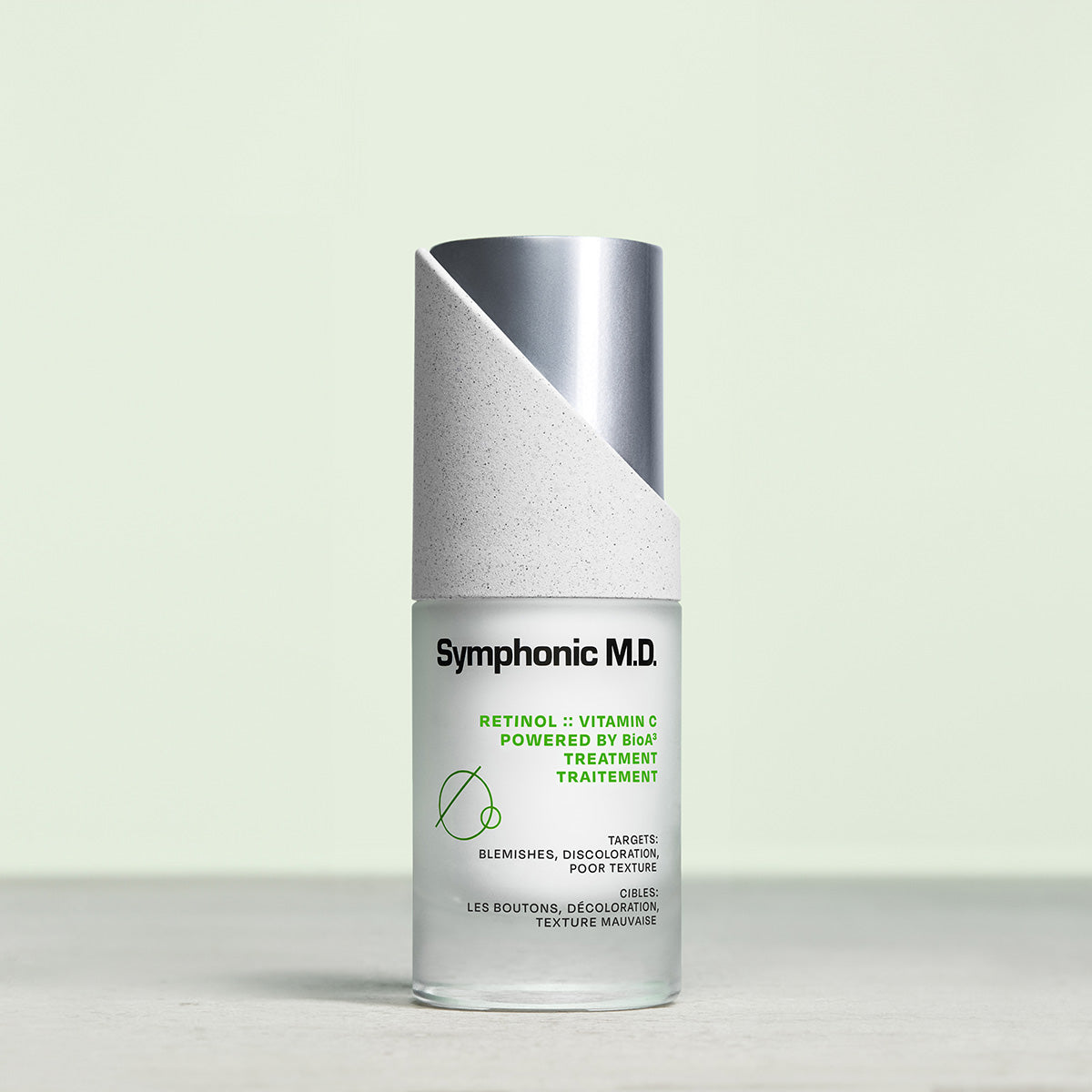
Retinol :: Vitamin C
We use a unique form of retinol with sunflower fatty acids to unclog pores and exfoliate skin. A stable form of vitamin C works alongside the retinol, clearing spots and brightening skin. Then our secret ingredient — BioA3 — keeps both active ingredients stable, effective, and non-irritating to skin.
The bottom line
Many people think that moisturizing will make acne worse — but they just haven't tried the right products or routine. Using an acne-friendly lotion in small amounts each day can help repair skin, reduce irritation, and manage oil production.
FAQs
Do I need moisturizer if I have acne?
Yes, you do! Dry, unmoisturized skin can actually be at a higher risk for acne. If you have acne-prone skin, you should use a light, non-comedogenic moisturizer to support skin health without clogging pores.
Is it normal to break out when using a new moisturizer?
Most people find that their skin takes time to adjust to a new product or skincare routine. However, if you break out after trying a new moisturizer, it might be too heavy — or you might be using too much of it. Look for moisturizers and lotions which are specially designed for acne-prone skin, and when in doubt, consult a dermatologist.
Is it OK to put moisturizer on popped pimples?
We don't recommend putting moisturizer directly on popped pimples. To be honest, we don't recommend popping or picking at pimples at all. When you pop a spot open, you create a gap in the skin's protective barrier which can lead to infection or irritation. Putting moisturizer directly on the wound could make things worse.
If you have a popped spot, clean the area gently with a mild cleanser and apply a topical antiseptic ointment. Once the skin has healed over, you can apply moisturizer as usual.
How long does it take for skin to adjust to a new moisturizer?
In most cases, it takes a few days for your skin to adjust to a new moisturizer. It might feel dry or tight at first, but don't give up! If you're still having issues after a few days, then you can consider trying something else or speaking to a dermatologist.

